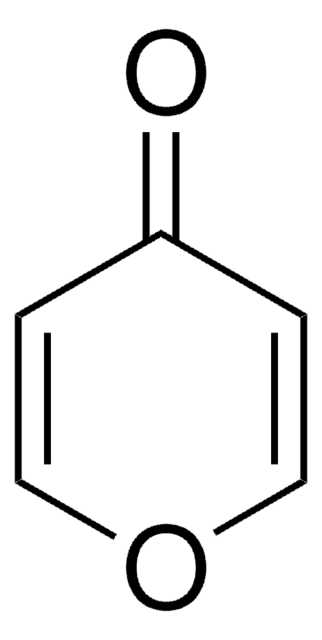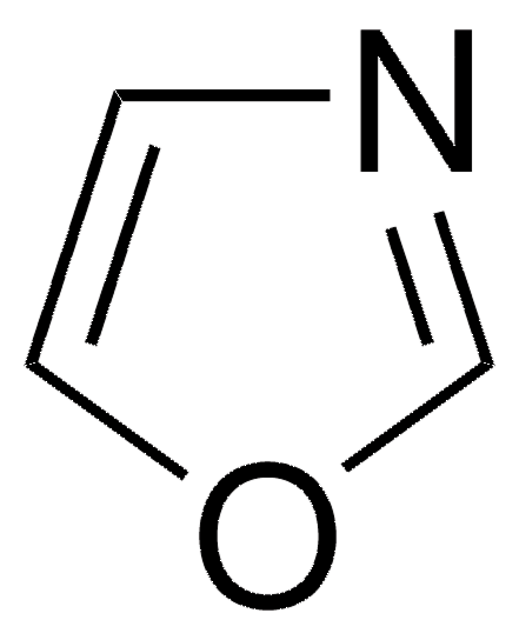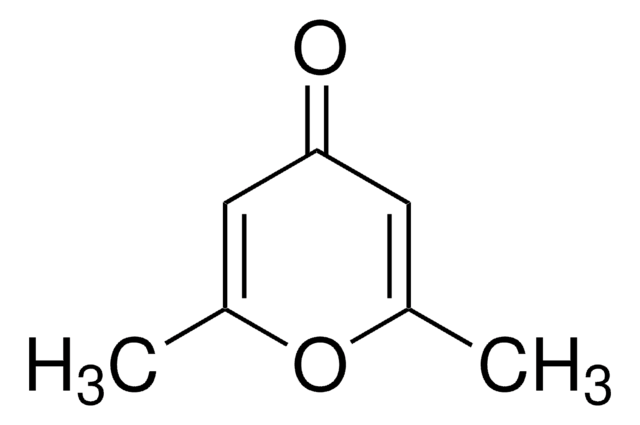463159
2H-Pyran-2-one
90%
Synonyme(s) :
α-Pyrone
About This Item
Produits recommandés
Pureté
90%
Indice de réfraction
n20/D 1.53 (lit.)
Point d'ébullition
102-103 °C/20 mmHg (lit.)
Densité
1.197 g/mL at 25 °C (lit.)
Groupe fonctionnel
ester
Température de stockage
2-8°C
Chaîne SMILES
O=C1OC=CC=C1
InChI
1S/C5H4O2/c6-5-3-1-2-4-7-5/h1-4H
Clé InChI
ZPSJGADGUYYRKE-UHFFFAOYSA-N
Vous recherchez des produits similaires ? Visite Guide de comparaison des produits
Description générale
Conditionnement
Autres remarques
Code de la classe de stockage
10 - Combustible liquids
Classe de danger pour l'eau (WGK)
WGK 3
Point d'éclair (°F)
201.2 °F - closed cup
Point d'éclair (°C)
94 °C - closed cup
Équipement de protection individuelle
Eyeshields, Gloves
Faites votre choix parmi les versions les plus récentes :
Certificats d'analyse (COA)
Vous ne trouvez pas la bonne version ?
Si vous avez besoin d'une version particulière, vous pouvez rechercher un certificat spécifique par le numéro de lot.
Déjà en possession de ce produit ?
Retrouvez la documentation relative aux produits que vous avez récemment achetés dans la Bibliothèque de documents.
Les clients ont également consulté
Notre équipe de scientifiques dispose d'une expérience dans tous les secteurs de la recherche, notamment en sciences de la vie, science des matériaux, synthèse chimique, chromatographie, analyse et dans de nombreux autres domaines..
Contacter notre Service technique











